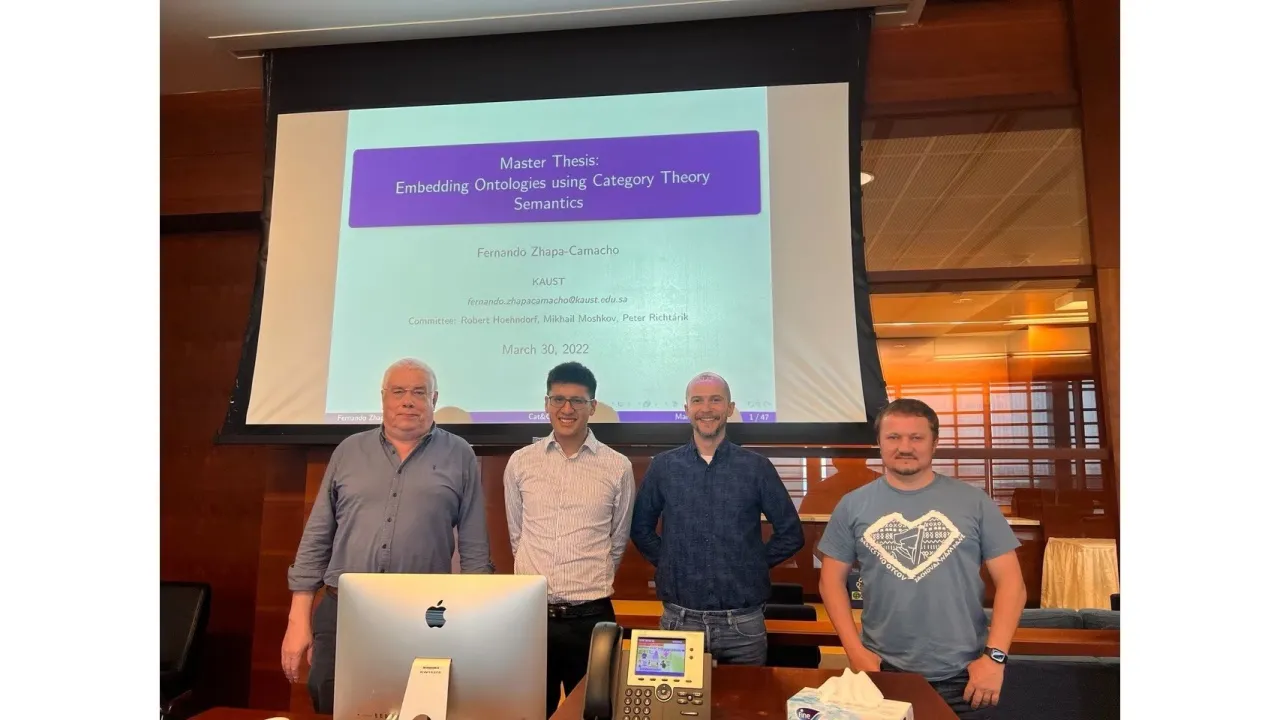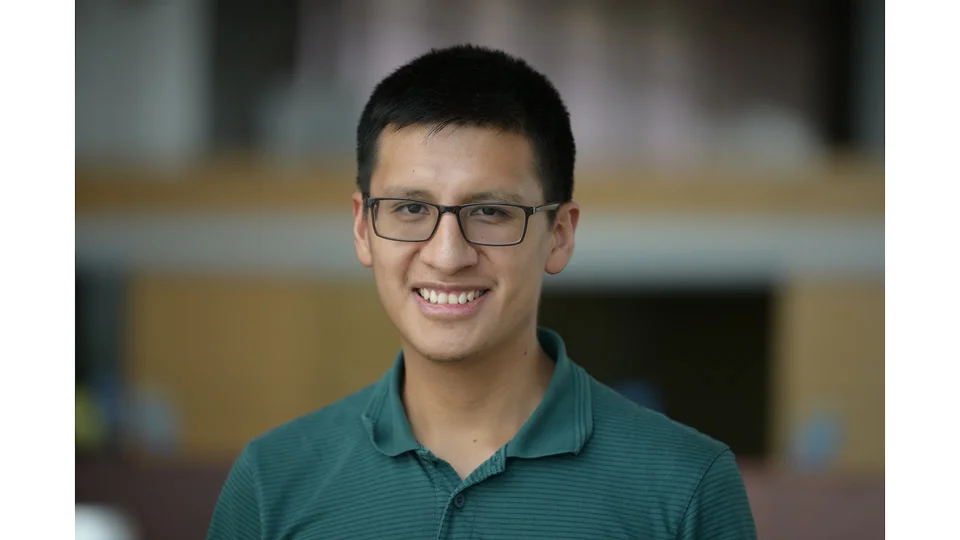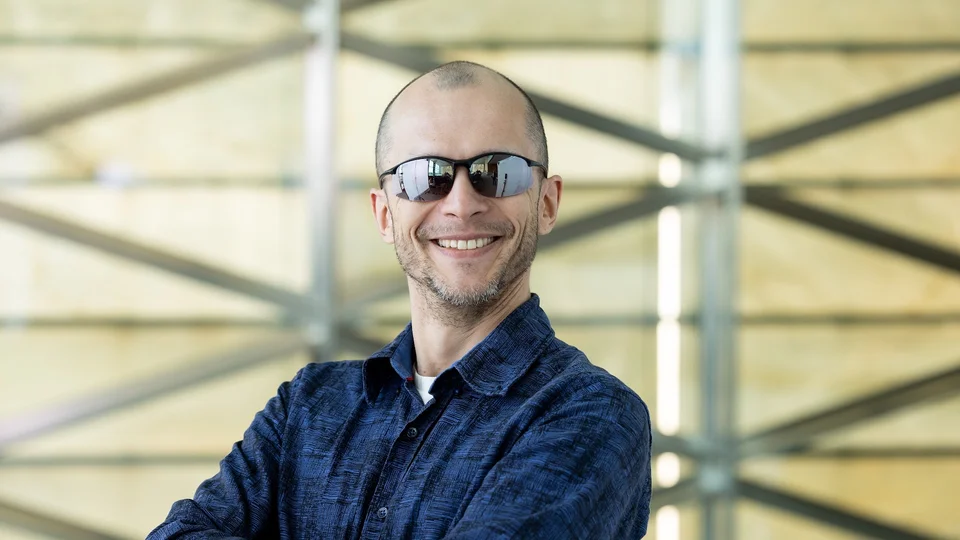
MS Thesis Defense: Embedding Ontologies using Category Theory Semantics by Fernando Zhapa Camacho
Fernando Patricio Zhapa Camacho an M.S./Ph.D. candidate in the KAUST Bio-Ontology research group under the supervision of Professor Robert Hoehndorf successfully defended his thesis "Embedding Ontologies using Category Theory Semantics".
About
Abstract:
Ontologies are a formalization of a particular domain through a collection of ax-
ioms founded, usually, in Description Logic. Within its structure, the knowledge in
the axioms contain semantic information of the domain and that fact has motivated
the development of methods that capture such knowledge and therefore are able to
perform different tasks such as prediction and similarity computation. Under the
same motivation, we present a new method to capture semantic information from an
ontology. We explore the logical component of the ontologies and their theoretical
connections with its counterparts in Category Theory, as Category Theory develops a
structural representation of mathematical systems and the structures found there have
strong relationships with Logic and Types founded in the so-called Curry-Howard-
Lambek isomorphism. In this regard, we have developed a method that represents
logical axioms as Categorical diagrams and uses the commutativity property of such
diagrams as a constraint to learn embeddings of ontology classes. Furthermore, as a
contribution in terms of software tools, we developed mOWL: Machine Learning Li-
brary With Ontologies. mOWL is a software library that incorporates methods in the
state of the art, usually in Machine Learning, that utilizes ontologies as background
knowledge. We rely on mOWL to implement the methods proposed here as well as
to compare with the existing ones.
Bio:
Fernando Patricio Zhapa Camacho is an M.S./Ph.D. candidate in the KAUST Bio-Ontology research group under the supervision of Professor Robert Hoehndorf. Before joining KAUST, Fernando obtained a bachelor's degree in Information Technology from Yachay Tech University, Ecuador.
Fernando’s research interests include knowledge representation and reasoning, machine learning and bioinformatics. He is interested in artificial intelligence and logic integration with applications in biology.

